How Covid-19 is impacting on public transport
Most people in South Africa rely on public transport and the Covid-19 pandemic and subsequent lockdown regulations have exacerbated an already overcrowded and run-down system.
Author:
3 July 2020

The vast majority of South Africa’s population relies on public transport. It has and continues to play a pivotal role in the lives of particularly township residents.
Townships were created when the country’s white government began implementing segregation under the infamous Native Urban Areas Act in 1923. The situation worsened when the National Party took over in 1948 and fast-tracked the policy, and more black people were displaced and disadvantaged.
Soweto became the largest township in South Africa. But the creation of employment centres in the area was not permitted, forcing residents to commute to and from Johannesburg for work. This policy was designed to maintain the status quo of white supremacy, as well as control the African labour force needed for rapid industrial development.

Today, vast numbers of township residents continue to have to commute into cities centres for work. Public transport takes the form of minibus taxis, Metrorail trains and Putco buses. In Johannesburg, the Rea Vaya bus rapid transit system started operating in 2009.
Each of these transport options comes with its own set of frustrations and setbacks, which the coronavirus pandemic and government regulations to stem its spread have exacerbated.
-
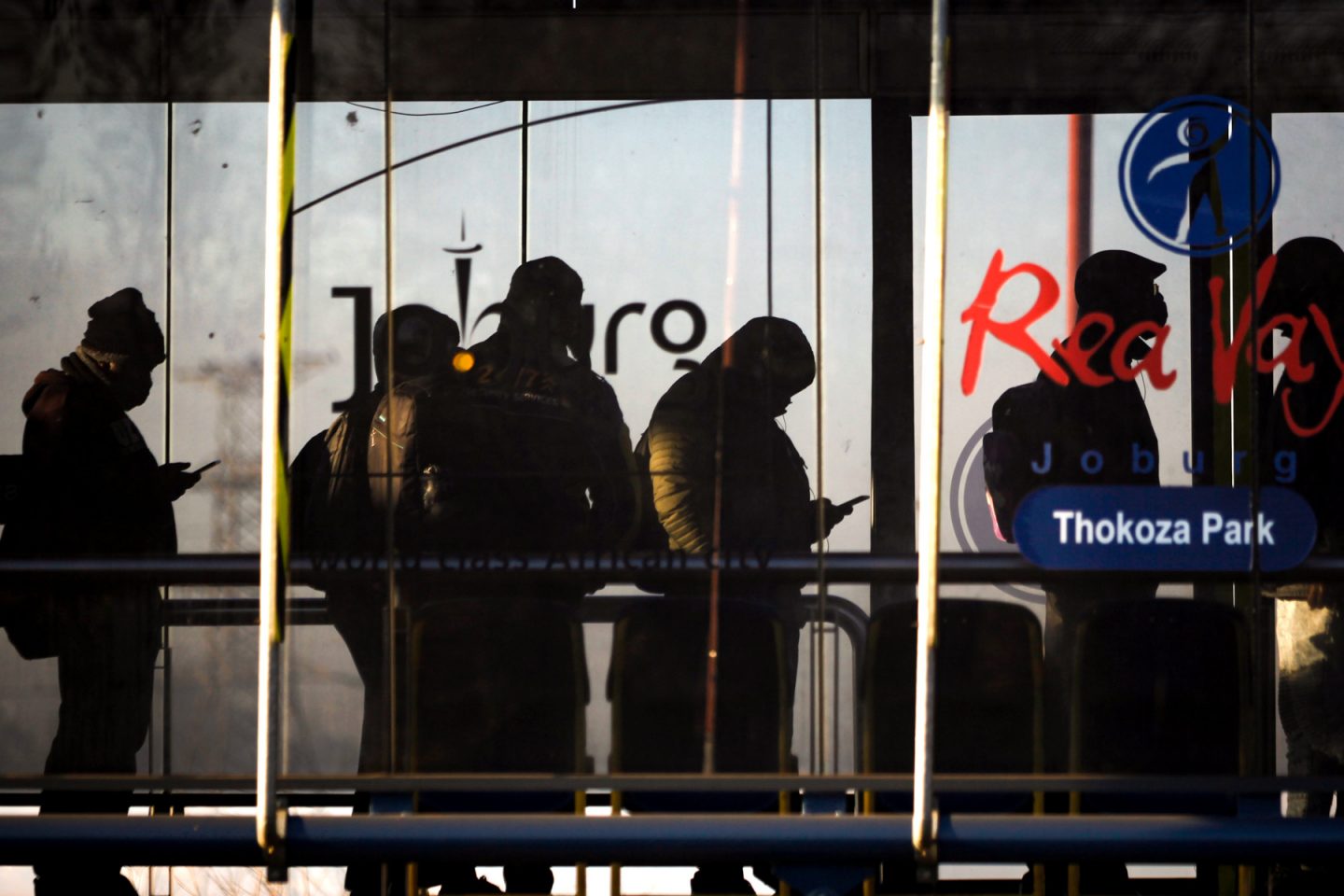
The number of commuters using the Rea-vaya buses in Soweto has increased because of the trains that are not operational and the taxi issues. They are separated in different groups to bring order and avoid congestion inside the Thokoza station. 02/07/20 Photo: Oupa Nkosi -
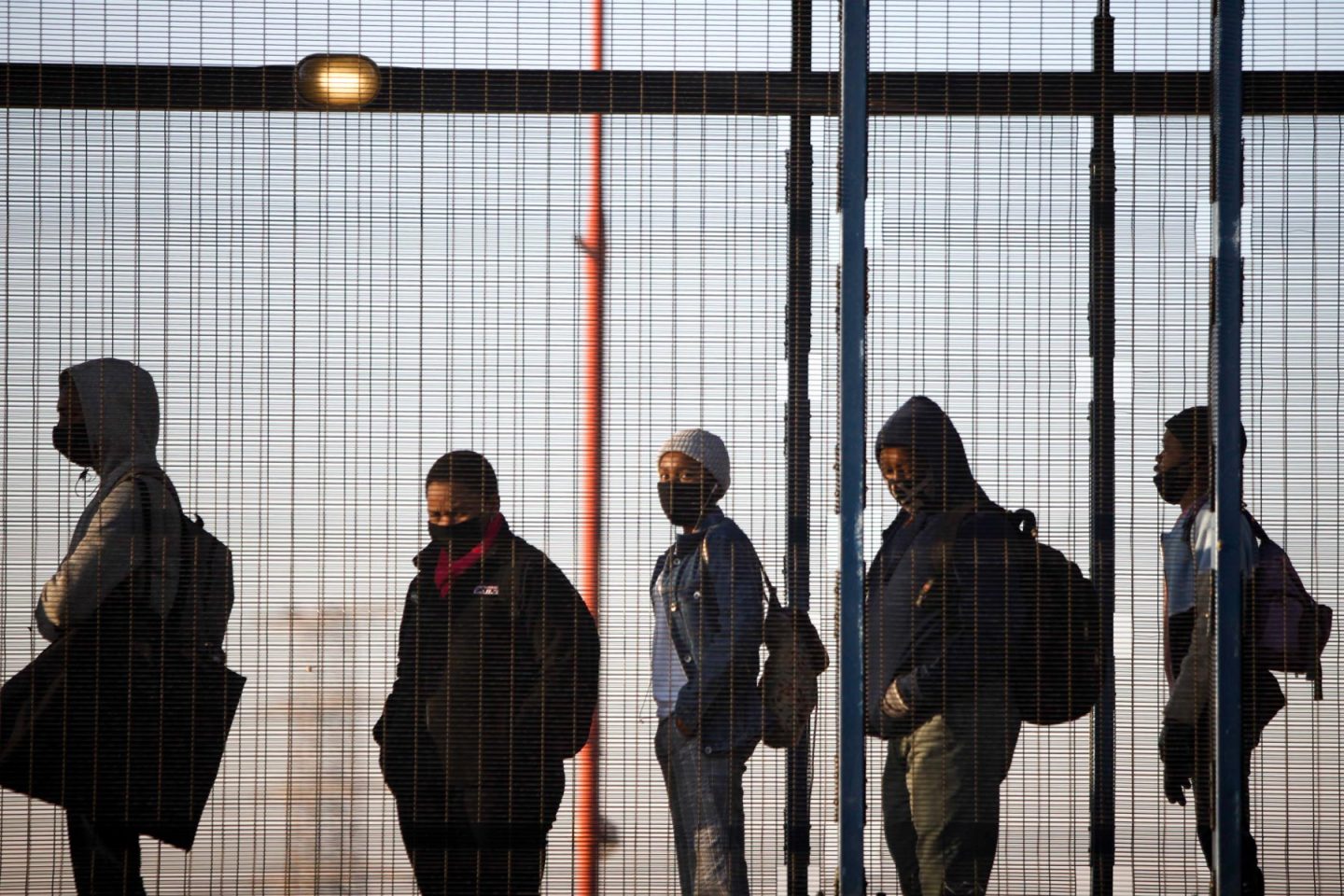
The number of commuters using the Rea-vaya buses in Soweto has increased because of the trains that are not operational and the taxi issues. They are separated in different groups to bring order and avoid congestion inside the Thokoza station. 02/07/20 Photo: Oupa Nkosi -
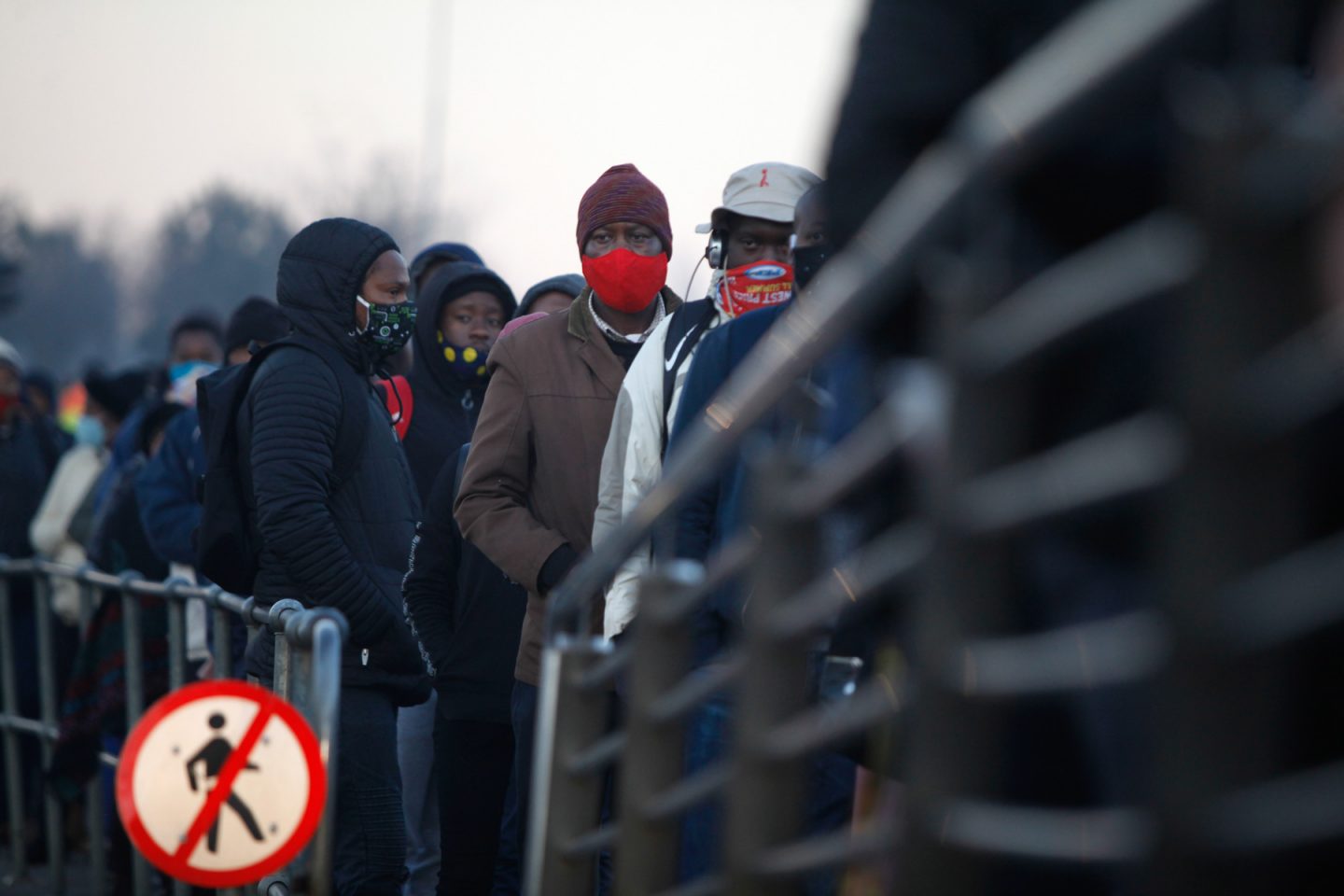
The number of commuters using the Rea-vaya buses in Soweto has increased because of the trains that are not operational and the taxi issues. They are separated in different groups to bring order and avoid congestion inside the Thokoza station. 02/07/20 Photo: Oupa Nkosi

Metrorail
State-owned Metrorail trains transport about two million people a day in the four provinces in which the service operates: Gauteng, KwaZulu-Natal, the Eastern Cape and Western Cape. Though affordable, these trains are often overcrowded, and during the Covid-19 pandemic this poses grave health risks for commuters.
Trains are inevitably high-risk in terms of contracting and spreading the virus. Covid-19 cases are spiking as the government eases lockdown regulations, and the highest number of cases and deaths are in the provinces in which Metrorail operates.

A month ago, a concerned Soweto resident invited New Frame to visit some of the train stations around the township. Kliptown Station, like the Nancefield, Mlamlankunzi, Mzimhlophe, Dube and Ikwezi stations, was deserted and in a deplorable state. Entrance kiosks, toilets, offices, windows and doors had been vandalised. Even the burglar bars had been stolen off the window frames. This week, the situation was seemingly unchanged at the Ikwezi and Kliptown stations.
The high-voltage electricity cables overhead have been cut and are dangling low enough to be an electrocution hazard for commuters waiting on the platforms. The damage continues past the station, along the tracks to a nearby shack settlement and then on to other stations. Surprisingly, residents walking past these cables were unconcerned, although some expressed disappointment at the situation.
-
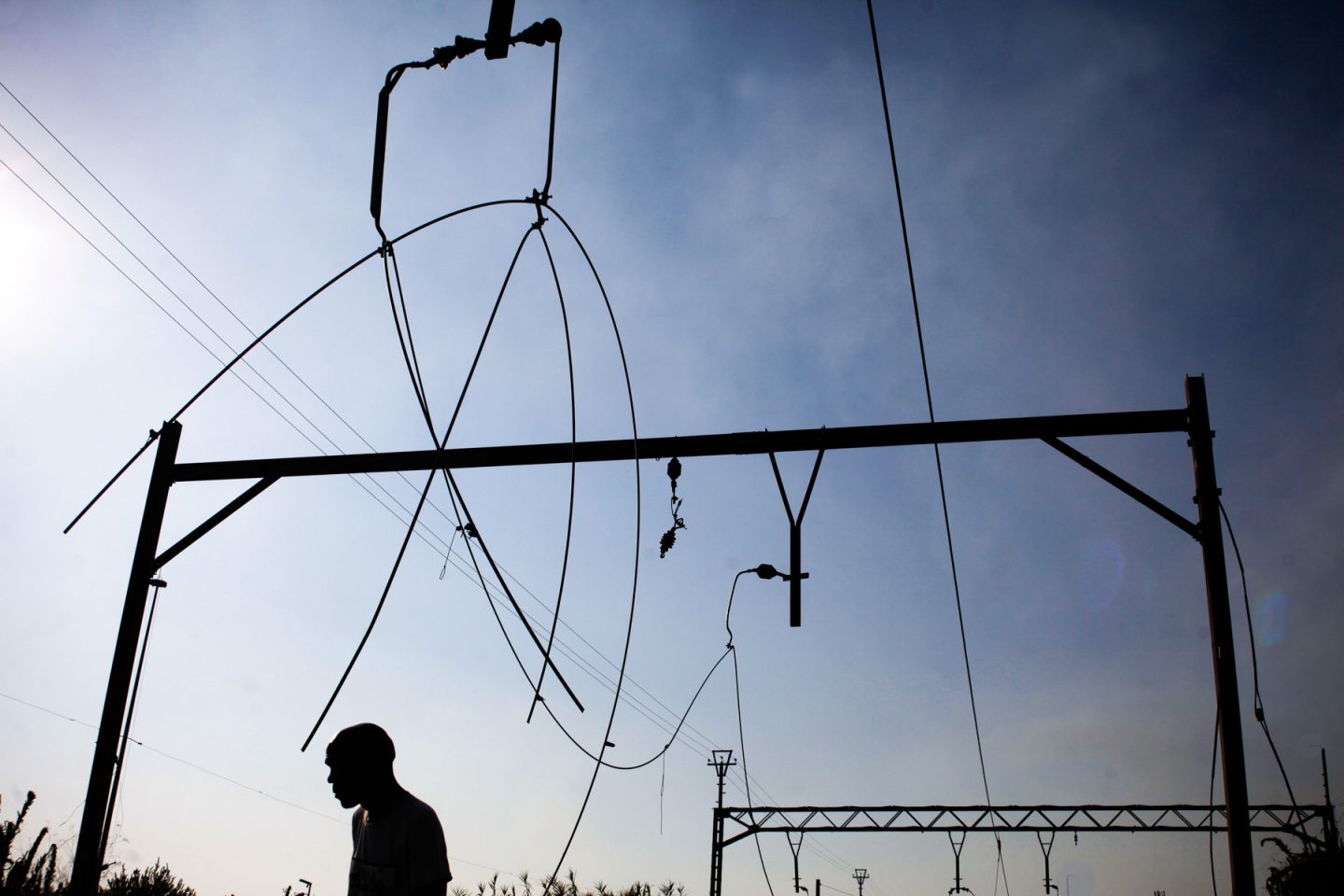
2 June 2020: This station, like many others in and around Soweto, is no longer fit to operate because of cable theft and vandalism before and during the Covid-19 lockdown. -
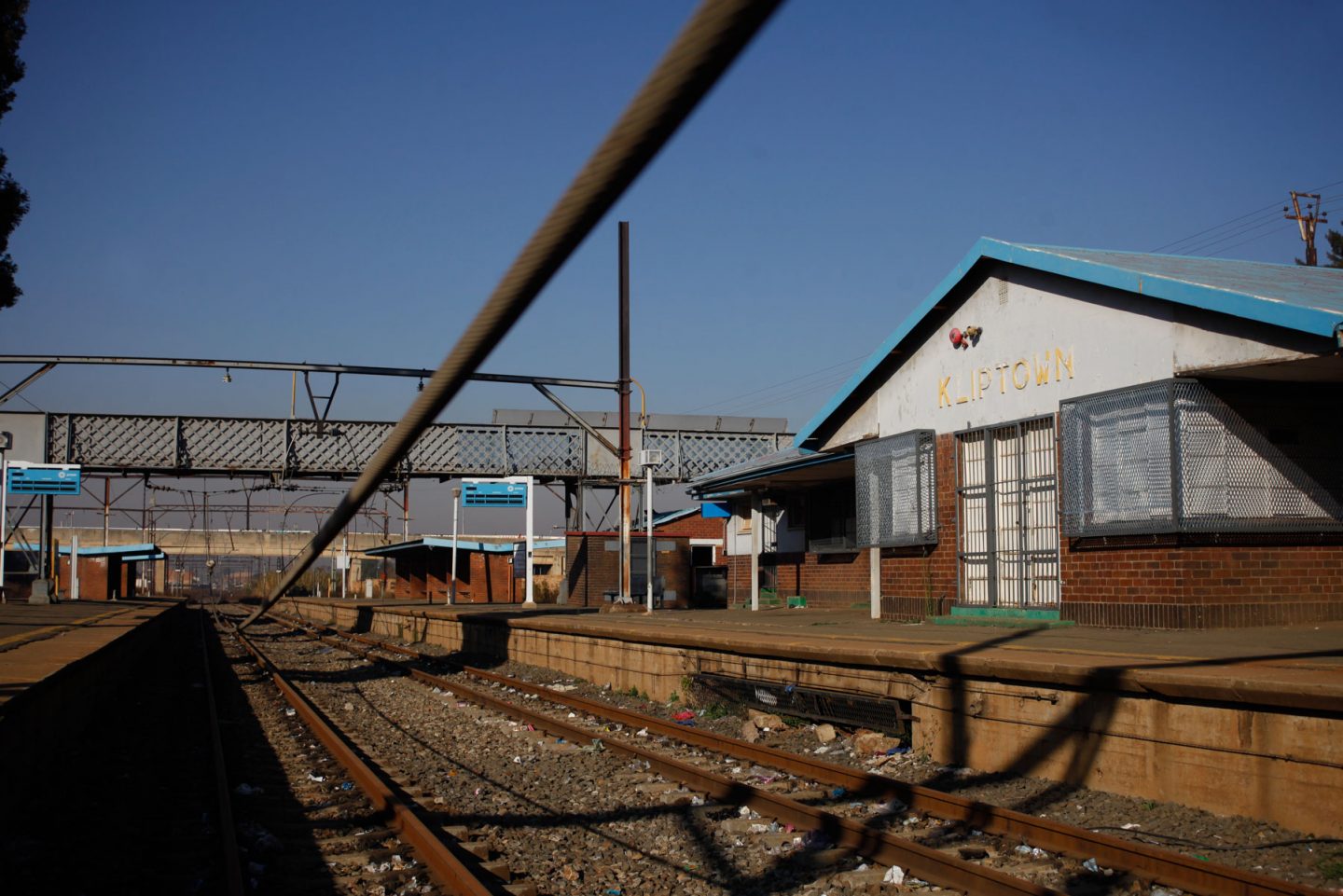
2 June 2020: This station, like many others in and around Soweto, is no longer fit to operate because of cable theft and vandalism before and during the Covid-19 lockdown.
“Eish, my brother. This means that we won’t be travelling by trains any time soon. The taxis are expensive and we don’t have the money,” said one man, crossing the railway line and heading to the busy Kliptown market.
Others were blunt in their accusations. “Yilabafana be-nyaope abayenze lokho (It’s the nyaope boys that did this),” said a concerned elderly man, who sells sweets and snacks from his stall on the road facing Walter Sisulu Square, in the heart of Kliptown.

Residents said the cables were stolen prior to the lockdown, but that things got worse during this time. Some said the theft was not committed by amateurs but by syndicates that are well resourced. Those that spoke to New Frame did so on condition of anonymity, fearing reprisal, and some claimed that those responsible for the theft belong to the notorious Marashea gang. Residents said they have heard gunfire many times.
Walking along the railway line, there are a number of informal electrical connections that supply the nearby shack settlement. But the station remains dark at night. Residents said a passer-by found a body near the station in the early hours of the morning, shortly after the lockdown began.
Putco
Putco was established in 1945 and is the biggest commuter bus operator in the country. The company has distributed pamphlets to commuters notifying them that it has postponed its annual fare increase, which usually takes place in July.
Some of the chief concerns of passengers are that the buses don’t have flexible operating hours to accommodate those who finish work at off-peak hours, and that during peak hours the queues and waiting times for buses are long.

-
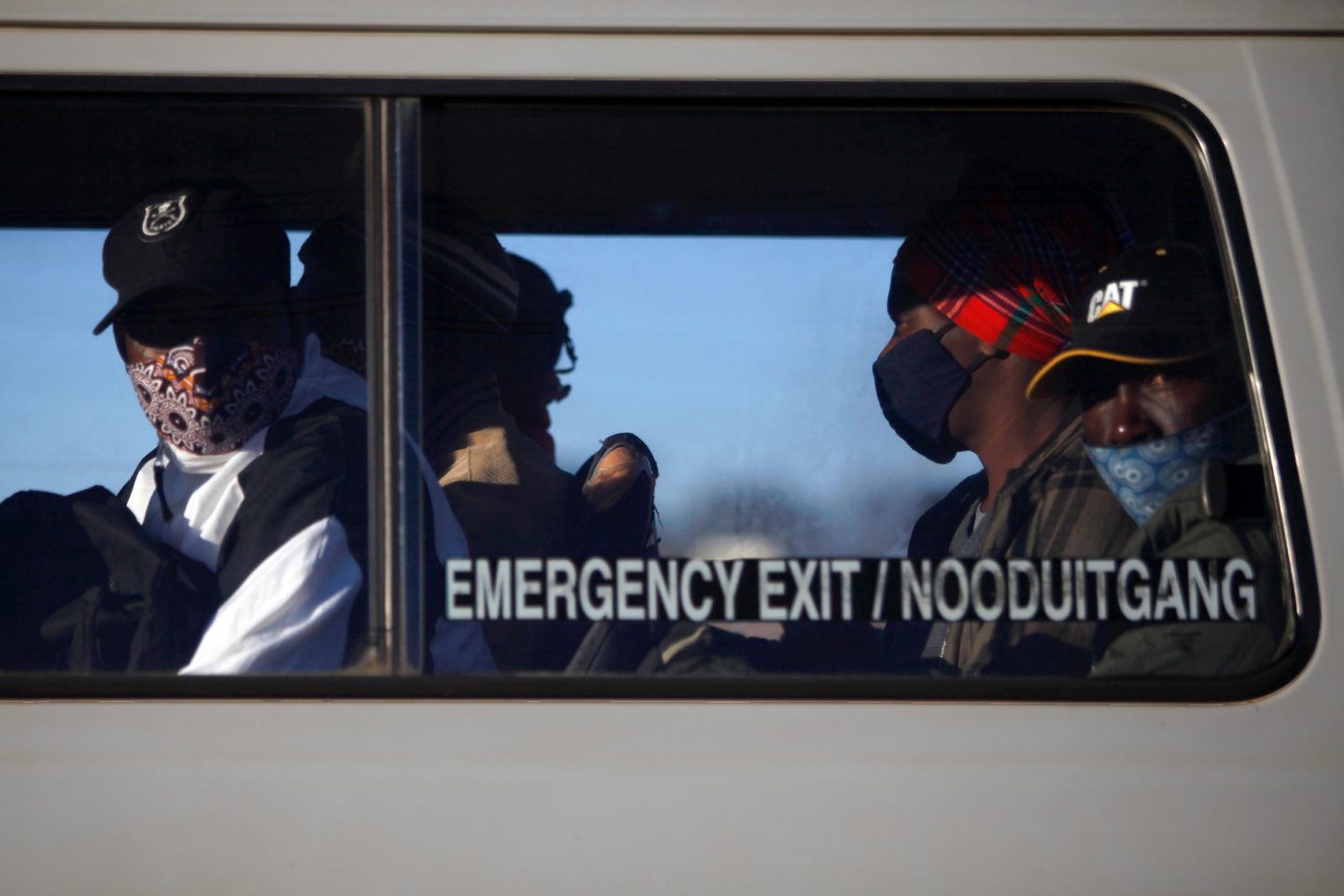
30 June 2020: A taxi operating at full capacity in Durban Deep, south of Johannesburg. -
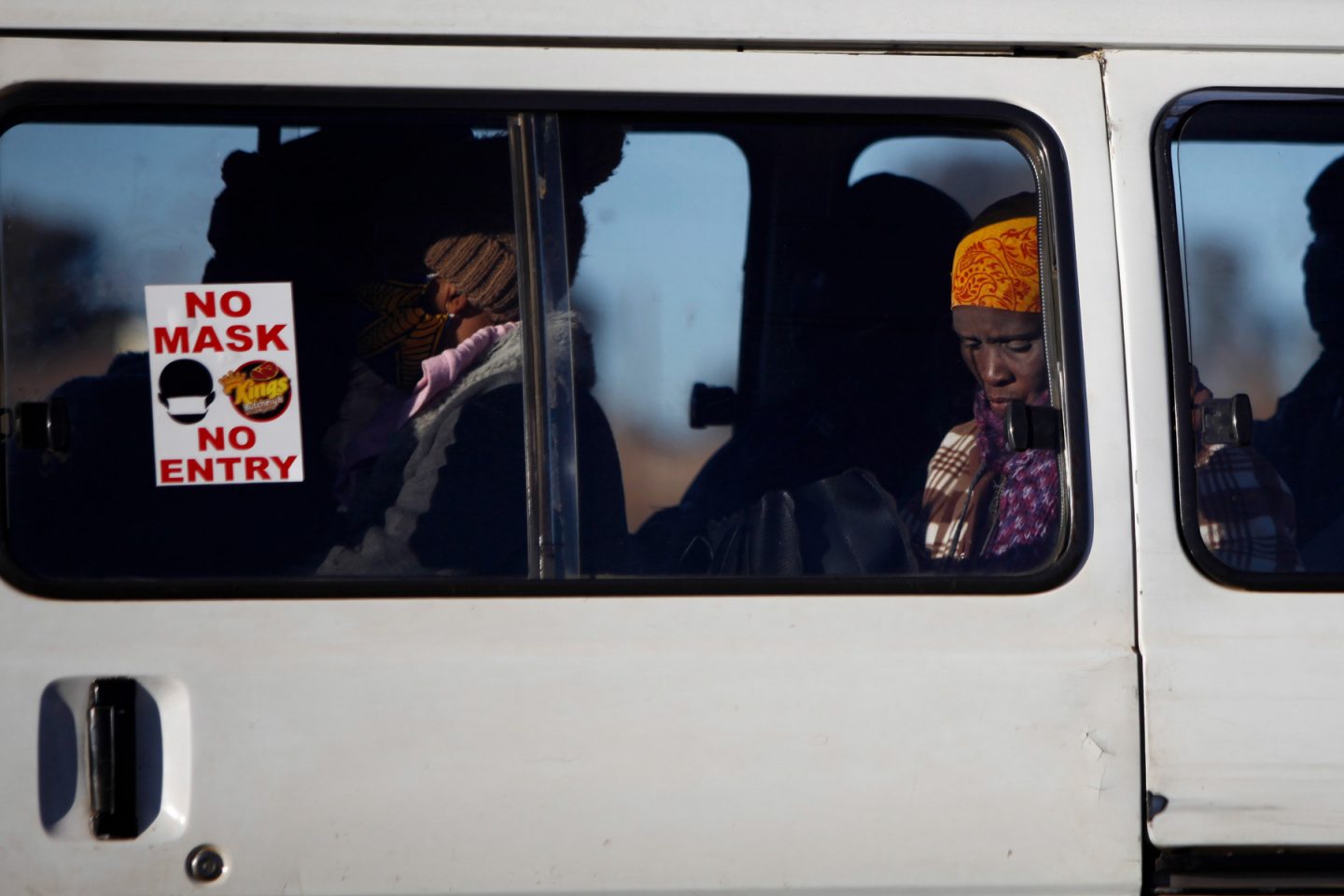
30 June 2020: A taxi operating at full capacity in Durban Deep, south of Johannesburg.

-
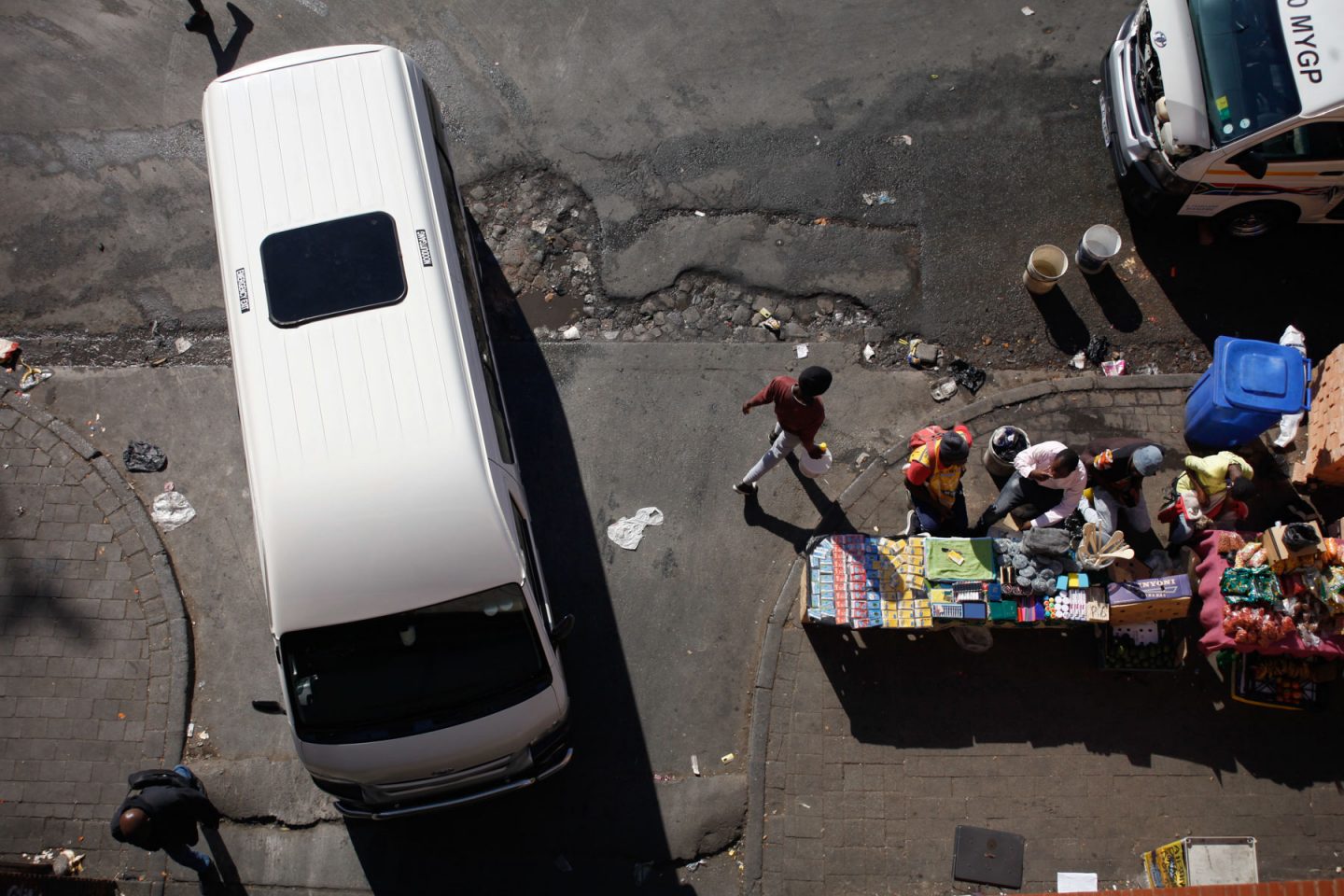
2 July 2020: The Bree Taxi Rank in Johannesburg. -
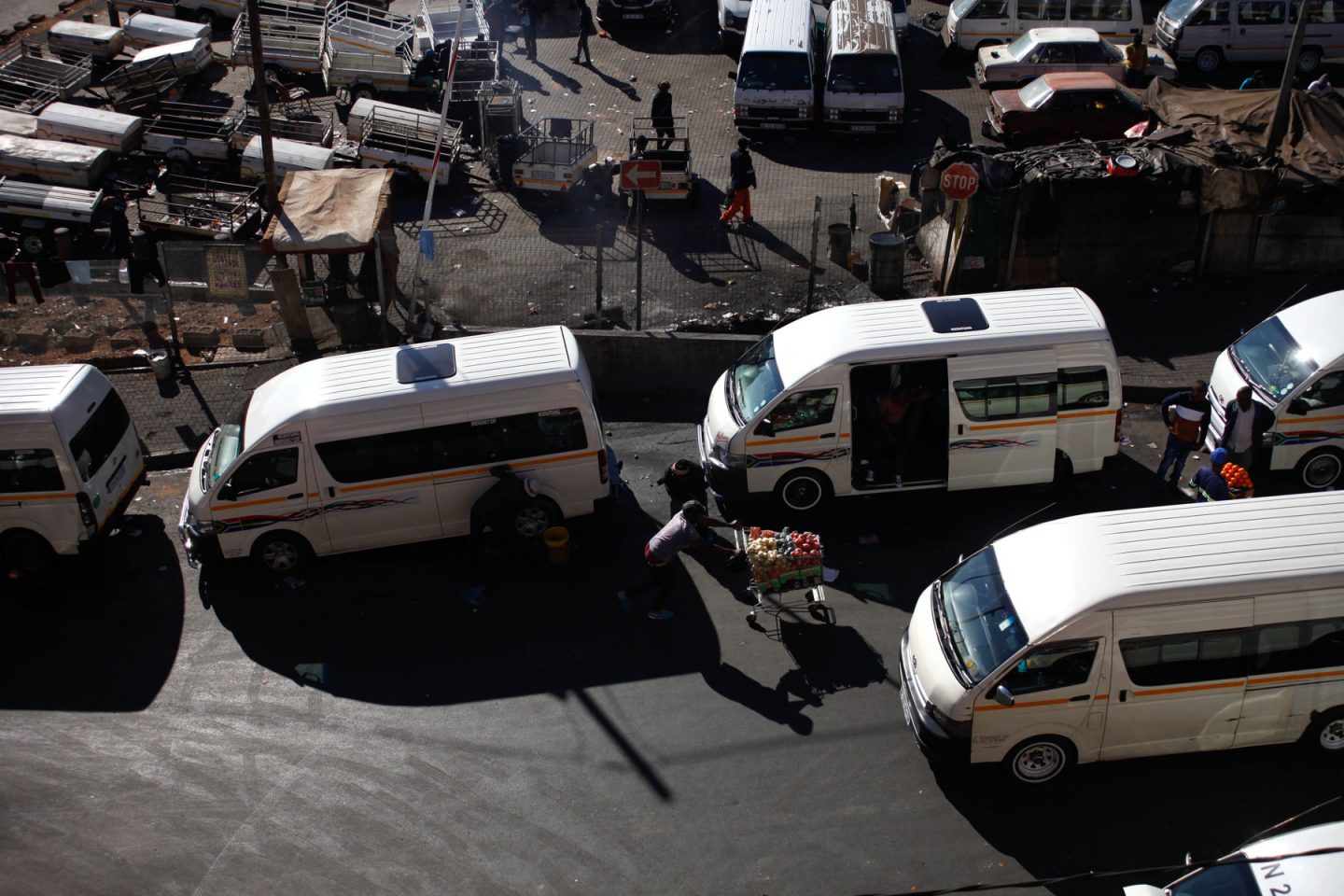
2 July 2020: The Bree Taxi Rank in Johannesburg. -
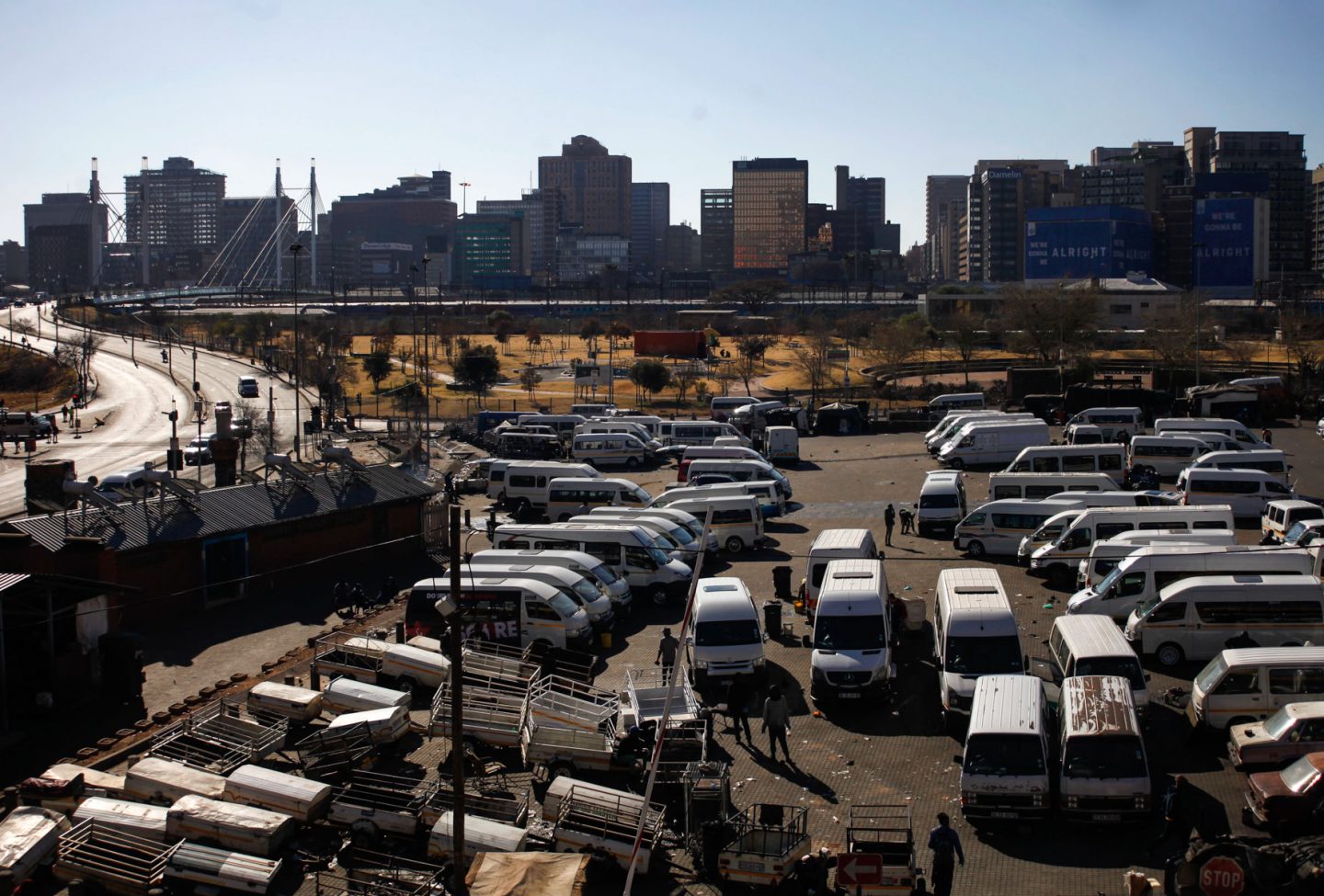
2 July 2020: The Bree Taxi Rank in Johannesburg.
Taxis
After many failed meetings with Minister of Transport Fikile Mbalula, the minibus taxi industry decided to begin operating at full capacity again on Monday 29 June and has resumed interprovincial travel. This is in flagrant contravention of the government’s Covid-19 regulations.
The industry is unhappy with the minister’s proposed R1 billion relief fund and its strict conditions. These include that taxi businesses be registered and tax compliant, and that employees be registered with the Unemployment Insurance Fund.

Rea Vaya
When New Frame visited the Thokoza Park Rea Vaya Station this week, the queues were long but orderly. All the commuters were wearing face masks, but there was no physical distancing.
Buses were constantly on the move, dropping off and picking up commuters. Inside the buses, certain seats are marked with a blue cross to indicate that they should be left unoccupied, in compliance with social distancing regulations.

